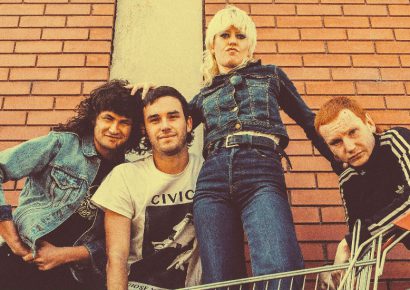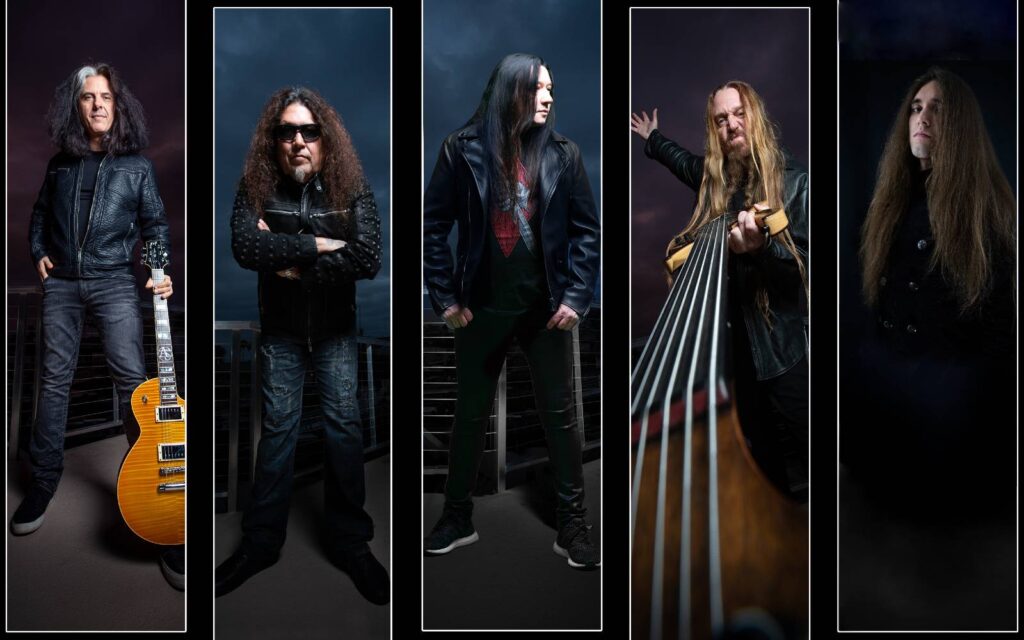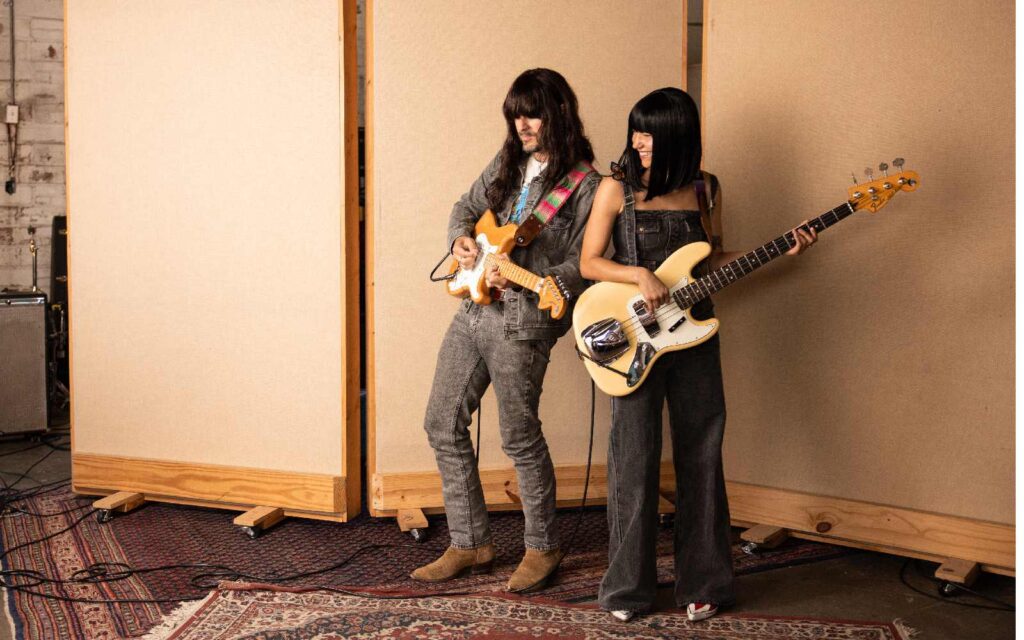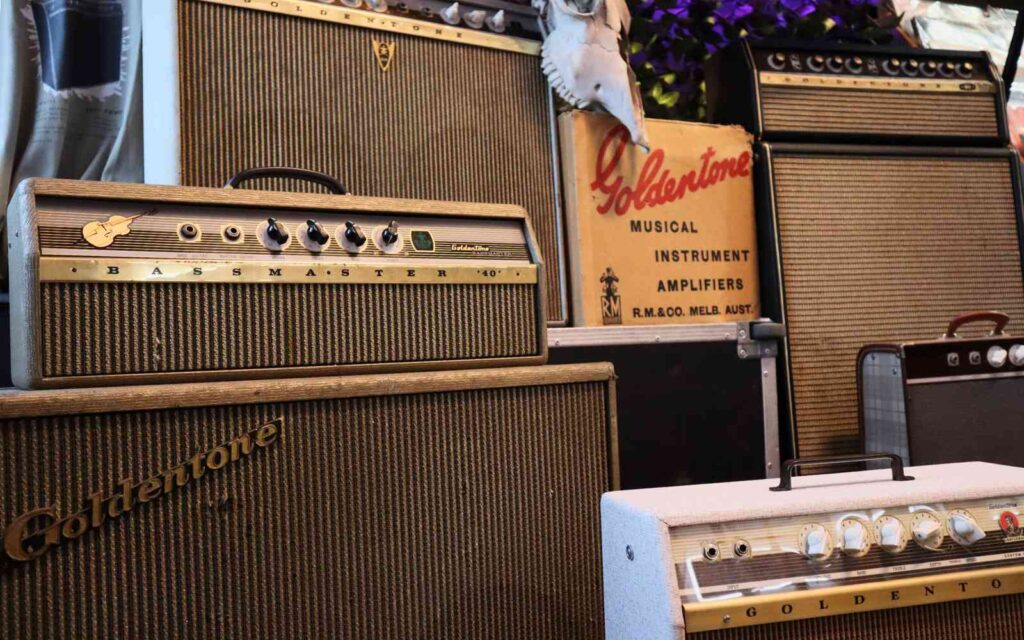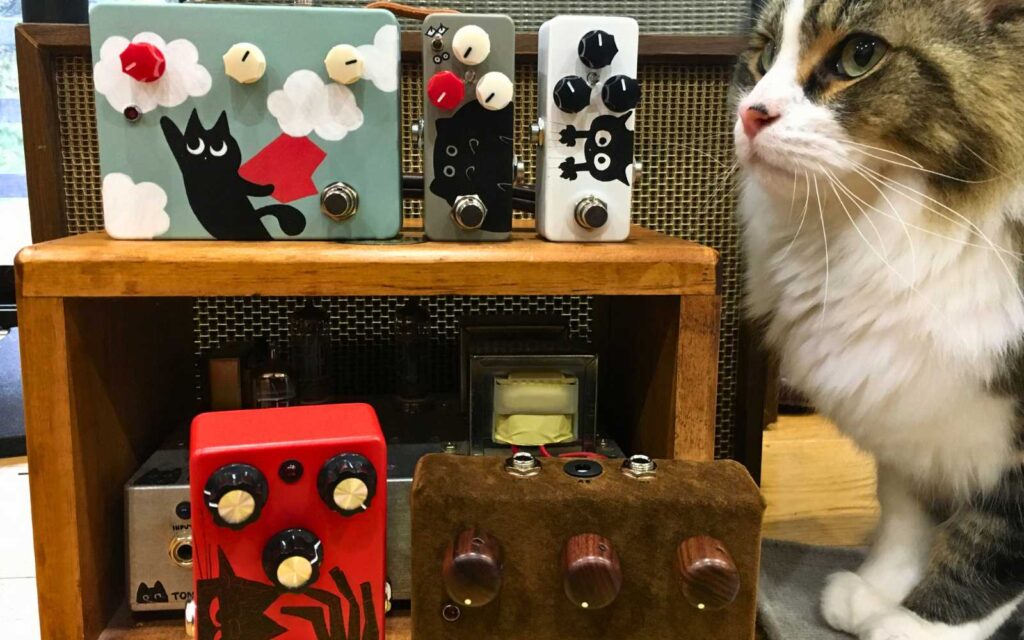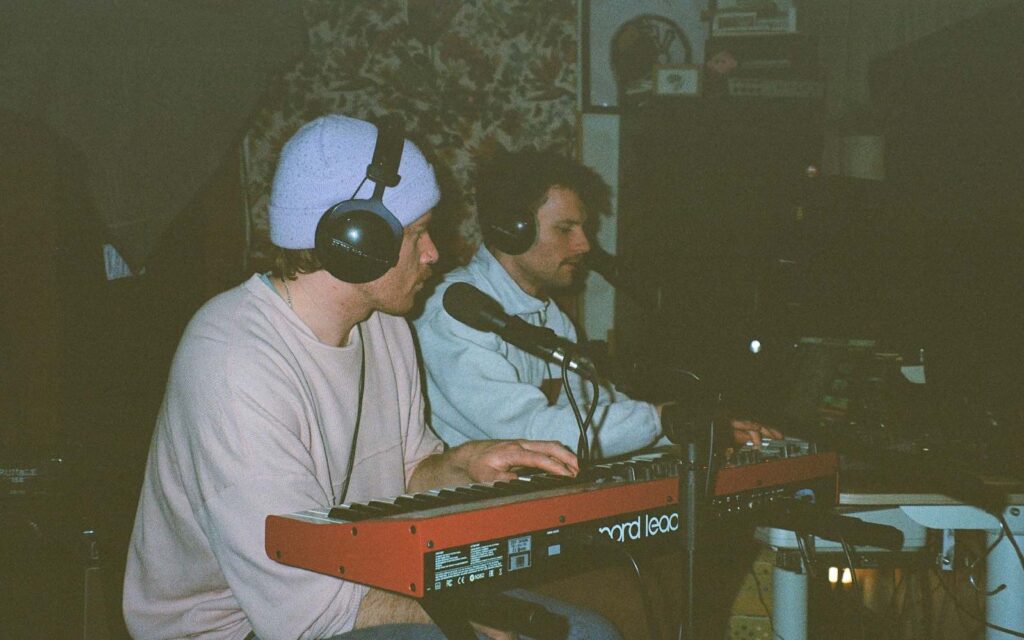“You think I’m strong, but I just pretend,” sings Shomo in the reflective intro to the album’s title track. There’s a symbiosis between the sound of the record and Shomo’s lyrics throughout, as aggression and anger are balanced by vulnerability and a gentler touch.
“There are a lot of songs that maybe the lyrics seem like they’re a bit uplifting or positive when in reality they’re actually really, really dark,” Shomo says. “But for the most part, the song is a vibe and you’ve just got to find it and ride the vibe. For the heavier stuff, I usually tend to be a bit more angry and for the lighter stuff I tend to usually be a bit more tongue in cheek about it.”
Shomo produced the album and took care of the majority of instrumentation. He’d already employed this approach on 2014’s Disgusting and 2016’s Aggressive, but this time he chose to depart from his Ohio home studio. The songs came together during travels to L.A., New York and Tokyo before Shomo hunkered down to record in Nashville’s Blackbird Studio.
“The point was to go around and take trips and try and get inspired by different things to shake it up a little bit,” he says. “And I think it worked. It was a really fun process and it just made for a lot of cool creative moments.”
Shomo’s interest in stylistic progression directly correlates with his intention to communicate his message in a more powerful way. That shows up on Disease in the form of muscular heaviness, segments of fast-paced punk rock riffing and the injection of widescreen melody.
“I definitely try and improve and push things every record, whether that just be melodies or guitar work or even drums – every bit of it,” he says. “Every record you want to be moving forward. You don’t want to be taking a step back. For me that just means trying to push the envelope a little harder each time.”
Prior to starting Beartooth, Shomo was a member of metalcore band Attack Attack! He joined as a 16 year old, originally providing keyboards and programming before taking lead vocal duties on the band’s final record, This Means War. Songwriting and studio production has been his central concern for over a decade and Shomo’s process has become increasingly self-contained.
“I’m always going to be taking inspiration from things I listen to, but honestly when I get into studio mode I just shut down,” he says. “I don’t really listen to much. I especially don’t listen to music that’s in the same genre. Majority of the time when I’m making a record, if I’m driving to and from the studio I’m listening to ’80s pop or something completely different. So when I come in I feel like I can be a bit more creative off the cuff for the heavy stuff.”
His production and mixing methods are largely self-developed, and he says this end of the process is even less referential. “I just kind of do what I do. I don’t really try and focus it too much or compare it too much to other things. I just try and make the record the way that I think it should sound. I try and trust that and do the best that I can and that’s really all that I can do.”
Shomo was attracted to Blackbird Studio for its analogue setup, which has given rise to albums by Ray LaMontagne, Alabama Shakes, Paramore, Alice in Chains, Yo La Tengo and stacks more. The analogue production method was a major shift from Shomo’s digitally abetted home recording approach. The focus on keeping it raw and honest coheres with the psychologically revealing nature of the lyrics. However, it’s not like Shomo just thrashed it all out.
“I would be sitting there doing a guitar part over and over and over and over. Same with drums, same with vocals, same with everything. It was just like, ‘If this is going to be a more raw sounding record, I need to be really performing well.’ So I was extremely critical on that front. I tried to rely on myself as a musician rather than relying on the editing of digital recording.”
Beartooth tour Australia in early July, tickets available via the band’s website.

